Bahrain, an archipelago comprising 33 islands, is a fascinating blend of ancient history and modern development. This small nation in the Arabian Gulf offers a unique insight into the Middle East, blending traditional culture with progressive values.
Situated in the heart of the Arabian Gulf, Bahrain is a nation that captivates visitors with its rich history, vibrant culture, and modern advancements. Despite its small size, Bahrain plays a significant role in the region, known for its strategic location, economic dynamism, and cultural heritage. This blog delves into the various facets that make Bahrain an intriguing destination, from its historical roots to its contemporary achievements and future aspirations.
Table of Contents
Geography
Bahrain is situated in the Arabian Gulf, near the western shores of the Persian Gulf. Covering a total land area of 760 square kilometers, it is one of the smallest nations in Asia. Bahrain lies in the heart of the Middle East, just to the east of Saudi Arabia and west of the Qatar peninsula, making it a significant hub in the region. The country’s strategic location has historically made it a vital trading and cultural crossroads, influencing its development over millennia.
States Of Bahrain
Bahrain is not divided into states but rather into governorates. There are four governorates in Bahrain:
- Capital Governorate
- Muharraq Governorate
- Northern Governorate
- Southern Governorate
These governorates serve as administrative divisions for the country.
Historical Overview
Ancient Times
Bahrain’s history stretches back over 4,000 years to the ancient Dilmun civilization, a significant trading center linking Mesopotamia and the Indus Valley. The Dilmun era is often regarded as the island’s golden age, with evidence of sophisticated urban planning, temples, and burial mounds. This heritage is celebrated through numerous archaeological sites, including the Bahrain Fort, a UNESCO World Heritage site. The fort’s layers reveal continuous human settlement, reflecting Bahrain’s importance through different historical periods, from the Dilmun era to the Islamic period and beyond.
Islamic Era
With the advent of Islam in the 7th century, Bahrain quickly embraced the new faith. It became an important center for Islamic learning and trade. The Khamis Mosque, one of the oldest mosques in the region, stands as a testament to the country’s early adoption of Islam. This period also saw Bahrain becoming a thriving hub for pearling, which remained a cornerstone of its economy for centuries. Bahrain’s strategic location and rich marine resources made it an essential player in the regional economy.
Pearling and the Economy
Bahrain’s pearling industry flourished for hundreds of years, making it one of the wealthiest regions in the Arabian Gulf. The waters around Bahrain were renowned for producing some of the finest pearls, which were highly sought after in markets as far away as Europe and India.
The traditional pearling economy is commemorated in the Bahrain Pearling Trail, another UNESCO World Heritage site, showcasing the cultural and economic significance of this industry. The decline of the pearling industry in the early 20th century due to the advent of cultured pearls marked a significant economic shift for Bahrain.
Modernization and Oil Discovery
The discovery of oil in 1932 marked a significant turning point for Bahrain. As the first country in the Arabian Gulf to find oil, Bahrain quickly began to modernize its infrastructure and economy. The newfound wealth funded the development of modern amenities, education, healthcare, and urban planning, transforming Bahrain into a modern state.
The oil industry remains a crucial part of Bahrain’s economy, although efforts are being made to diversify into other sectors. The establishment of the Bahrain Petroleum Company (BAPCO) was a pivotal moment, catalyzing the country’s rapid development.
Diversification and Economic Growth
In recent years, Bahrain has been proactive in diversifying its economy beyond oil. The government has invested heavily in banking, finance, and tourism. Manama, the capital city, has become a financial hub in the region, attracting businesses and expatriates from around the world.
The Bahrain International Circuit, which hosts the annual Bahrain Grand Prix, has put the country on the global sporting map, further boosting tourism and international recognition. The economic diversification strategy includes significant investments in the information technology and manufacturing sectors, aiming to create a sustainable and resilient economy.
Financial Sector
Bahrain’s financial sector is one of the most advanced in the Middle East, characterized by robust regulatory frameworks and a favorable business environment. The Bahrain Economic Development Board (EDB) plays a crucial role in attracting foreign investment and promoting economic growth. The country’s banking industry, particularly Islamic banking, has gained international recognition. Bahrain’s Stock Exchange and numerous financial institutions contribute significantly to its GDP, making it a pivotal financial center in the region.
Top Ten Must-Visit Destinations in Bahrain
Bahrain, a captivating island nation in the Arabian Gulf, offers a rich blend of ancient history, vibrant culture, and modern attractions. From historic forts to bustling markets and serene natural spots, Bahrain has something for every traveler. Here are the top ten must-visit destinations in Bahrain that you should not miss.
1. Bahrain National Museum, Manama
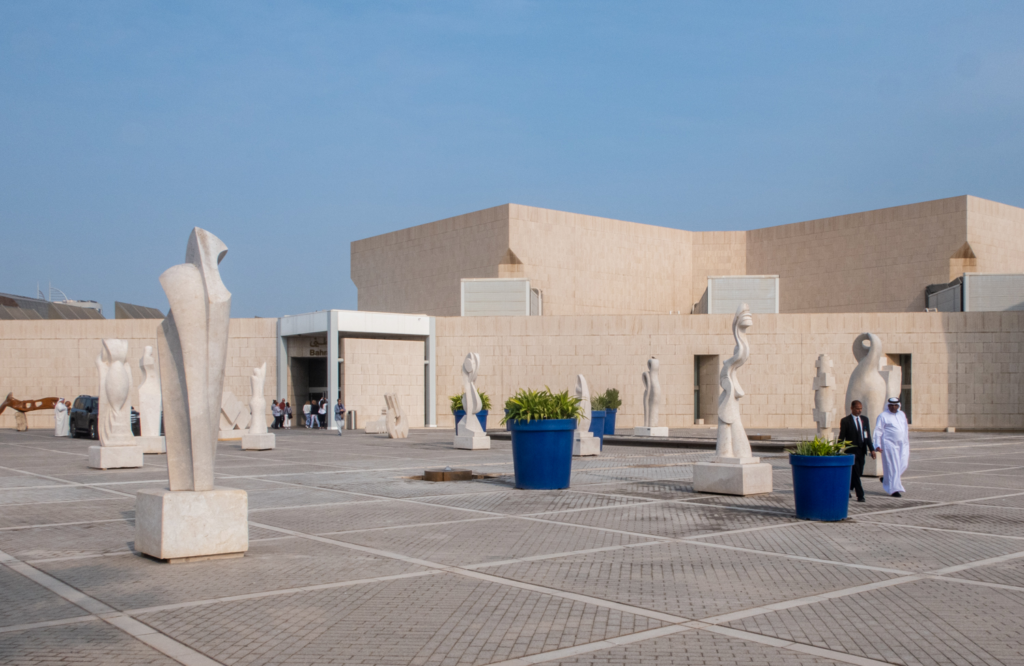
The Bahrain National Museum is the perfect place to start your journey through Bahrain’s rich history and culture. Located in Manama, this museum offers a comprehensive overview of the country’s past, showcasing artifacts from the ancient Dilmun civilization, Islamic periods, and modern times. The museum’s exhibits include traditional crafts, archaeological finds, and historical documents that provide a deep insight into Bahrain’s heritage. The museum’s architecture and location on the waterfront make it a picturesque and educational experience.
2. Al Fateh Grand Mosque, Manama
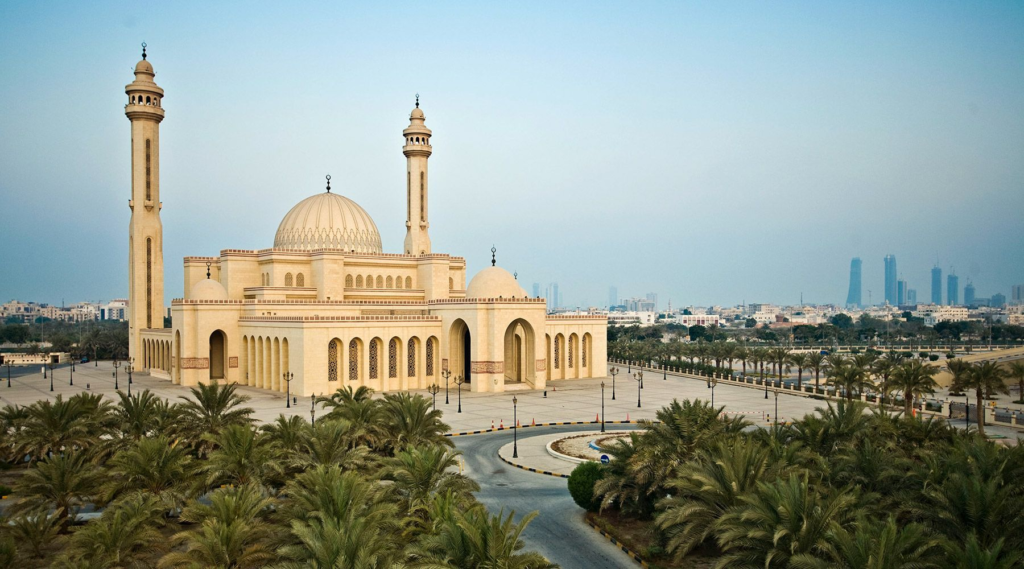
The Al Fateh Grand Mosque, also known as the Al Fateh Islamic Center, is one of the largest mosques in the world. Located in Manama, it can accommodate over 7,000 worshippers at a time. The mosque is a marvel of Islamic architecture, featuring an impressive dome, intricate designs, and beautiful chandeliers. Non-Muslim visitors are welcome to explore the mosque, learn about Islamic culture, and appreciate the stunning architecture. Guided tours are available, providing insights into the mosque’s history and significance.
3. Bahrain International Circuit, Sakhir

The Bahrain International Circuit in Sakhir is a must-visit for motorsport enthusiasts. This state-of-the-art facility hosts the annual Formula 1 Bahrain Grand Prix, attracting racing fans from around the world. The circuit offers a variety of experiences, including go-karting, drag racing, and track days where visitors can drive high-performance cars. The circuit’s modern infrastructure and thrilling events make it a highlight for adrenaline seekers and sports lovers.
4. Bab Al Bahrain, Manama

Bab Al Bahrain, located in the heart of Manama, is a historic gateway that once marked the entrance to the city. Today, it serves as a vibrant market area where visitors can experience traditional Bahraini commerce and culture. The bustling souq offers a variety of goods, including spices, textiles, jewelry, and handicrafts. Bab Al Bahrain is also home to several cafes and restaurants, making it a great place to explore, shop, and enjoy local cuisine.
5. Tree of Life, Sakhir

The Tree of Life is one of Bahrain’s most intriguing natural landmarks. Located in the desert near Sakhir, this lone tree has thrived for over 400 years despite the harsh, arid conditions and lack of water sources. The tree’s resilience and mystery make it a symbol of Bahrain’s enduring spirit. Visitors often marvel at this natural wonder and ponder the secrets of its survival. The site is easily accessible and offers a unique contrast to Bahrain’s urban attractions.
6. Al Areen Wildlife Park, Sakhir

Al Areen Wildlife Park, situated in Sakhir, is a sanctuary for a variety of native and exotic species. The park spans over 7 square kilometers and is home to over 100 species of animals and birds. Visitors can enjoy guided tours, see animals such as Arabian oryx, gazelles, and flamingos, and learn about conservation efforts. The park also features beautiful botanical gardens, making it a perfect destination for nature lovers and families.
7. Riffa Fort, Riffa

Riffa Fort, located in the town of Riffa, is a historic fortress that offers stunning views of the surrounding area. Built in the 19th century, the fort was once a royal residence and played a significant role in Bahrain’s history. Today, visitors can explore its well-preserved rooms, learn about its historical significance, and enjoy panoramic views from its towers. The fort’s architecture and strategic location make it a fascinating site for history enthusiasts.
8. Bahrain Bay, Manama

Bahrain Bay is a modern waterfront development in Manama that showcases Bahrain’s contemporary urban landscape. This area features a mix of residential, commercial, and leisure facilities, including luxury hotels, office buildings, and shopping centers. Visitors can enjoy a stroll along the waterfront, dine at high-end restaurants, and admire the innovative architecture. Bahrain Bay represents the country’s vision for the future, blending modernity with cultural heritage.
9. Muharraq Souq, Muharraq
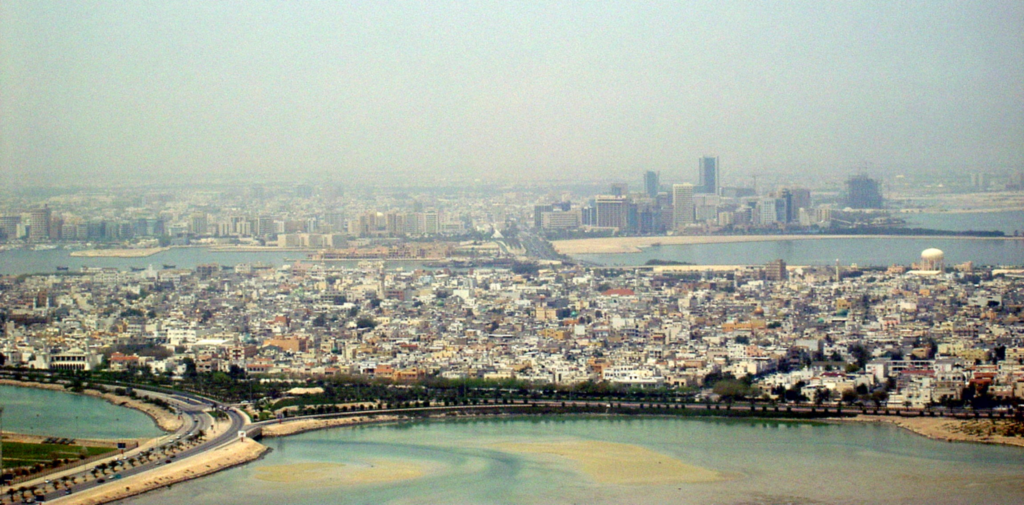
Muharraq Souq, located in the historic town of Muharraq, offers an authentic Bahraini shopping experience. The souq is known for its traditional shops selling spices, sweets, perfumes, and handicrafts. It is also home to several historic houses and museums that provide insights into Bahrain’s pearling history and cultural heritage. Exploring Muharraq Souq is like stepping back in time, offering a glimpse into the island’s past and vibrant community life.
10. Royal Camel Farm, Janabiyah
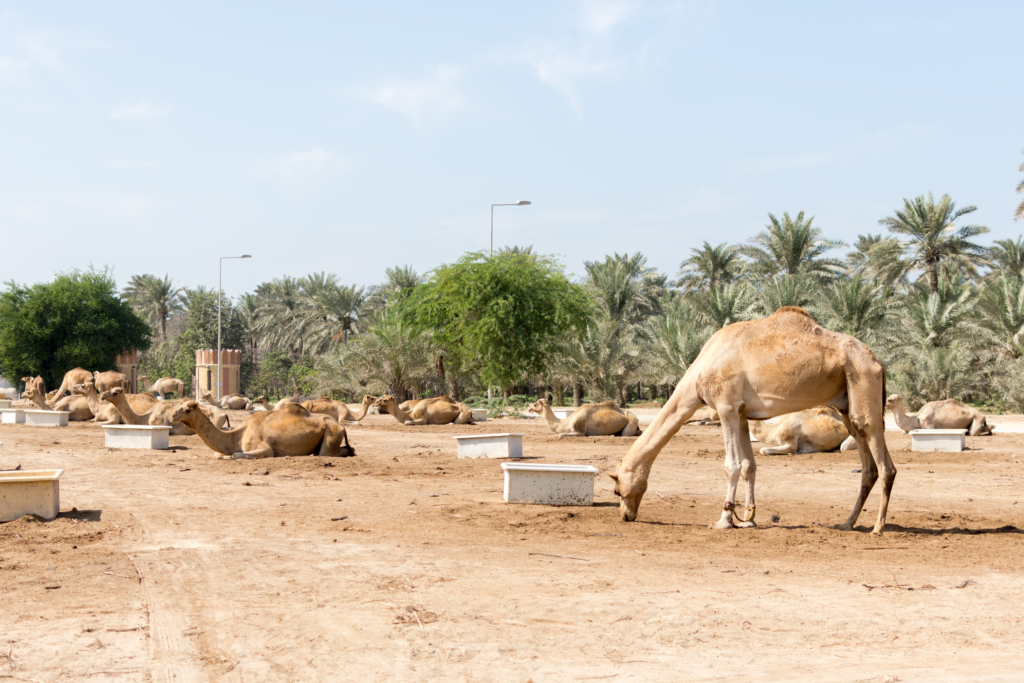
The Royal Camel Farm in Janabiyah is a unique attraction that provides visitors with an up-close experience of Bahrain’s traditional camel culture. The farm is home to hundreds of camels and offers insights into the care and breeding of these iconic animals. Visitors can interact with the camels, learn about their importance in Bahraini culture, and take memorable photographs. The Royal Camel Farm is a delightful destination for families and animal lovers.
Bahrain’s diverse attractions make it a captivating destination for travelers. From its historical landmarks and cultural sites to modern developments and natural wonders, Bahrain offers a rich tapestry of experiences that reflect its unique identity and enduring charm.
Tourism and Hospitality
Tourism is another key pillar of Bahrain’s economy. The country offers a variety of attractions, from historical sites to modern entertainment venues. The Bahrain National Museum provides a comprehensive overview of the country’s history and culture. The Al Fateh Grand Mosque, one of the largest mosques in the world, is a marvel of Islamic architecture. Additionally, the lively Bab Al Bahrain market in Manama is a great place to experience traditional Bahraini commerce and craftsmanship. The development of luxury hotels, resorts, and shopping centers has enhanced Bahrain’s appeal as a tourist destination.
Culture and Society
Bahrain’s culture is a rich tapestry woven from its long history and diverse population. Traditional Bahraini culture is deeply rooted in Islamic and Arab customs, but it also reflects influences from Persia, India, and Africa, due to centuries of trade and migration. This diversity is evident in Bahrain’s music, dance, and cuisine. The annual Bahrain International Music Festival and the Spring of Culture festival are key events that celebrate this cultural richness. Bahraini society is known for its hospitality and warmth, making visitors feel welcome.
Festivals and Events
Bahrain hosts numerous festivals and events that highlight its cultural vibrancy. The Bahrain International Airshow, the Bahrain Food Festival, and the Formula 1 Bahrain Grand Prix are some of the major events that attract international visitors. These events not only showcase Bahrain’s cultural and economic achievements but also provide a platform for international engagement and tourism promotion.
Culinary Delights
Bahraini cuisine is a delightful fusion of flavors influenced by its trading history. Traditional dishes such as Machboos (spiced rice with meat or fish), Harees (wheat and meat dish), and Balaleet (sweet saffron noodles) reflect the island’s culinary heritage. The local markets and restaurants offer a taste of Bahrain’s rich culinary traditions, blending Arabic, Persian, Indian, and African influences.
Top Eight Most Famous Food of Bahrain
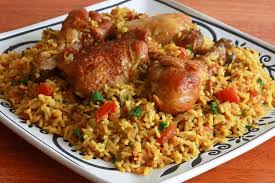
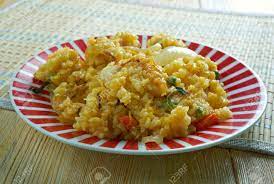
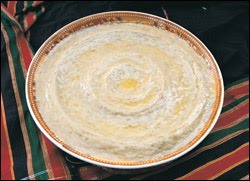
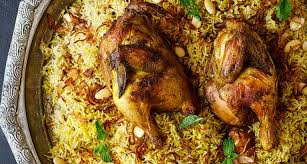



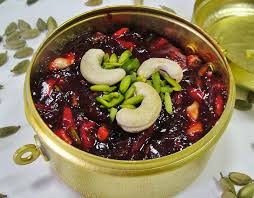
Education and Innovation
Bahrain places a strong emphasis on education and innovation. The country has numerous institutions of higher learning, including the University of Bahrain and the Arabian Gulf University, which attract students from across the region. Bahrain also promotes technological innovation and entrepreneurship, aiming to become a knowledge-based economy. Initiatives like the Bahrain FinTech Bay demonstrate the country’s commitment to fostering a vibrant tech industry. The government’s Vision 2030 strategy emphasizes the importance of education and innovation in achieving sustainable economic growth.
The higher education sector in Bahrain is well-developed, with several universities offering a range of programs in various disciplines. The Royal University for Women, Bahrain Polytechnic, and Ahlia University are among the institutions contributing to the country’s educational excellence. These universities collaborate with international institutions to provide high-quality education and research opportunities.
Technological Advancements
Bahrain is at the forefront of technological advancements in the region. The country has implemented various e-Government initiatives to enhance public services and improve efficiency. The launch of the Bahrain Innovation Centre and the Bahrain Tech Week highlights the government’s commitment to fostering a culture of innovation and entrepreneurship. The tech sector is poised for significant growth, driven by investments in infrastructure and human capital.
Natural Beauty and Wildlife
Despite its small size, Bahrain boasts diverse natural beauty and wildlife. The Al Areen Wildlife Park is home to a variety of native and exotic species, providing a haven for conservation efforts. Bahrain’s marine environment, including the Hawar Islands, offers pristine beaches and excellent opportunities for diving and water sports. The country’s commitment to environmental sustainability is reflected in its efforts to protect these natural resources.
Bahrain’s waters are teeming with marine life, making it a popular destination for diving and snorkeling enthusiasts. The warm waters of the Arabian Gulf are home to a variety of fish, coral reefs, and even the endangered dugong. The government has established marine protected areas to conserve these ecosystems and promote sustainable tourism.
The desert landscapes of Bahrain offer a stark contrast to its urban areas. The southern part of the island is characterized by rolling sand dunes and arid plains. The Tree of Life, a solitary tree that has survived in the desert for centuries, is a natural wonder and a symbol of Bahrain’s resilience. Desert safaris and camping trips provide visitors with an opportunity to experience the rugged beauty of Bahrain’s natural environment.
Challenges and Future Prospects
Like many countries in the region, Bahrain faces challenges such as economic fluctuations due to oil price volatility and political tensions. However, the government has shown resilience and adaptability in addressing these issues. Initiatives to diversify the economy, improve infrastructure, and enhance social welfare are ongoing, positioning Bahrain for a sustainable and prosperous future. The Vision 2030 strategy outlines a comprehensive plan to achieve economic diversification, social equity, and environmental sustainability.
Economic Diversification
Bahrain’s efforts to diversify its economy are yielding positive results. The financial sector, tourism, and information technology are emerging as key growth drivers. The government’s focus on developing non-oil sectors is aimed at reducing dependence on oil revenues and creating a more resilient economy. The establishment of free zones and economic cities is part of the strategy to attract foreign investment and stimulate economic activity.
Social Development
The government is committed to improving the quality of life for its citizens. Social development programs focus on healthcare, education, housing, and employment opportunities. The National Health Plan and the National Employment Program are key initiatives aimed at enhancing social welfare and promoting inclusive growth. Women’s empowerment and youth development are also high on the government’s agenda, reflecting Bahrain’s progressive outlook.
Conclusion
Bahrain’s unique blend of ancient history and modern dynamism makes it a captivating destination. From its rich cultural heritage and vibrant economy to its commitment to innovation and sustainability, Bahrain is a country that embraces progress while honoring its past. As it continues to evolve, Bahrain remains a beacon of resilience and adaptability in the Arabian Gulf, offering a promising future for its citizens and visitors alike.

